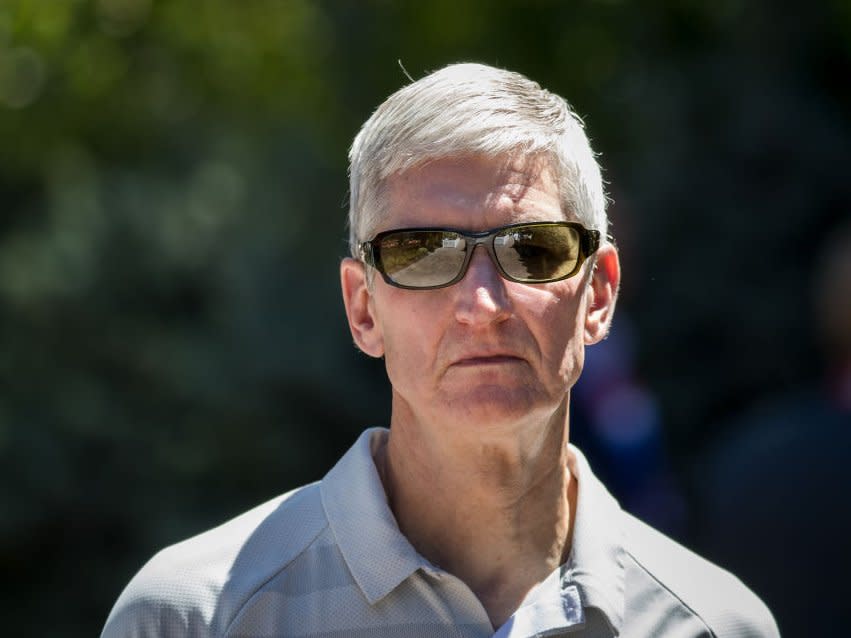Apple is going to track your calls and emails and give your device a 'trust score' to combat fraud

Drew Angerer/Getty Images
Apple is going to start using your phone call and email data in an attempt to combat fraud.
The data will give devices a "trust score," and it could help Apple detect fraudulent transactions, reviews, and accounts.
The plans were spotted when iTunes quietly updated its privacy policy.
Apple will start using call and email data to calculate trust scores for your devices in a bid to combat fraud.
First spotted by Venture Beat, a new provision has quietly appeared updated in the iTunes Store privacy page:
"To help identify and prevent fraud, information about how you use your device, including the approximate number of phone calls or emails you send and receive, will be used to compute a device trust score when you attempt a purchase. The submissions are designed so Apple cannot learn the real values on your device. The scores are stored for a fixed time on our servers."
Essentially, Apple will assign devices "trust scores" based on phone call and email data. Gizmodo said this could help Apple police fraudulent purchases, reviews, and accounts. But as Apple makes clear, the data won't sit on its servers forever.
The update comes at a time when US lawmakers are asking Apple how it handles the personal data of its users. Apple CEO Tim Cook has been consistently strident in his view that hoarding personal data is a bad thing,
"We felt strongly about privacy when no one cared," Cook said in June. "We could not see the specific details, but we could see that the building of the detailed profile on people likely would result in significant harm over time."
Business Insider has contacted Apple for comment.
NOW WATCH: Watch Apple unveil the new iPhone XR, XS, and XS Max
See Also:
Don't forget to back up your iPhone or iPad before you download iOS 12
What really happened to the man behind a viral Twitter thread about Apple deleting his movies
SEE ALSO: Here are all the major changes coming to iPhones and iPads with iOS 12

 Yahoo Finance
Yahoo Finance 
